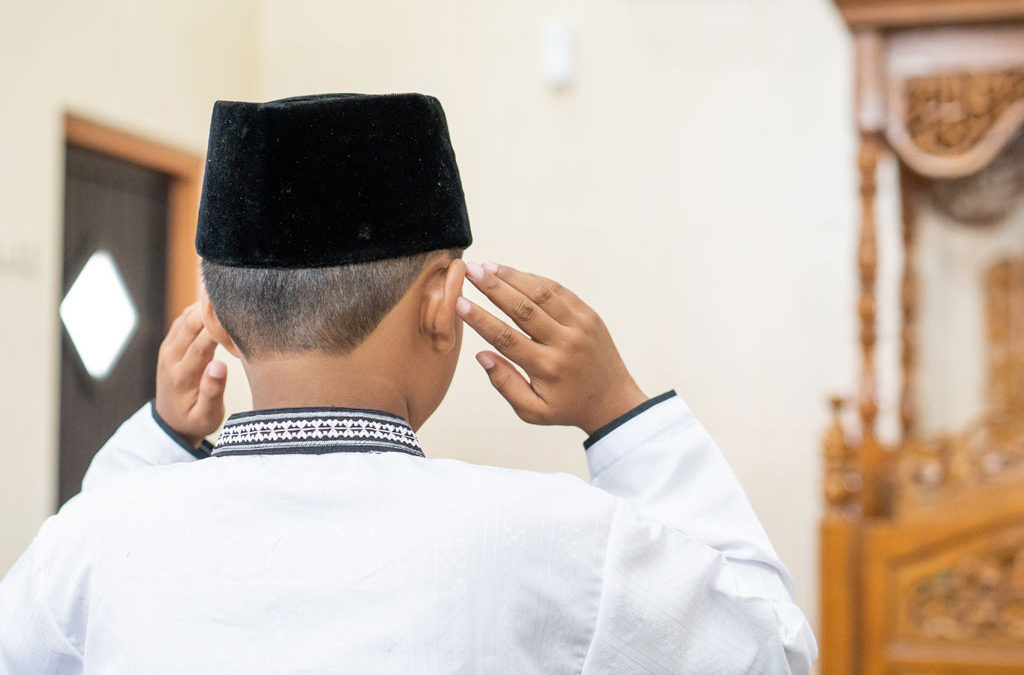As Muslims, we have five pillars, or necessary religious actions, that are meant to be a root system for us on Earth, anchoring us in faith. The second of these pillars is salah: five daily prayers to remind us of our purpose and continuously construct our lives. After years of experimenting with time management, I have concluded that the best possible method I can employ to organize my time and priorities is through salah.
At every level, the principle of how things work is that a structure determines a function. Structure can be anything from material to a layout to physical actions. If we peer into a masjid, we may find accessible wudu stations, large, soft carpets, and an imam raising a hand to his ear, reciting into a microphone. Chances are, for most Muslims, we will immediately feel more inclined to pray than in an alternate location.
The elements of an educational environment function similarly to a masjid by drawing out certain qualities in a child. A Montessori classroom, for instance, may contain stations with unique materials set up. The walls may wear few decorations and the lighting may feel softer than other classrooms. At face value, these design staples are miniscule, randomized, and inconsequential. But at the core of the Montessori method is research, and these intentional, consistent nuances come together to add value to the classroom setup for each individual child to have the best possible learning environment.
Just as a masjid serves to lessen the distance between a Muslim and their faith, Montessori is meant to soften the barrier between a chlid and their unleashed potential for excellence. In an IME classroom, we attempt to bring these two structures together.
In addition to space, organization is associated with time. Every day is naturally divided into day and night, light and dark. And beyond that solar cycle, Islam provides us 5 further intervals: Fajr-Dhuhr, Dhuhr-Asr, Asr-Maghrib, Maghrib-Isha, and Isha-Fajr. If one divides their day into these sections, then suddenly, the opportunity for what can be accomplished seems more plentiful. As the saying goes, our work expands to fill the time allotted to it. When we designate time constraints for tasks, we can make greater progress in a shorter period.
When we wake up for fajr—not to attend a class, a meeting, or run to work, but—so that we may experience the potential of a new day, we take control of time for ourselves and connect with our Creator (SWT). Having control is empowering and prayer can serve as this spiritual alarm clock for us, encouraging healthy habits and giving us a meaningful reason to get out of bed.
Salah can also be a source of peace for one’s mind. Beyond the physical prostration and bowing, it is a moment to pause and reflect on your actions and intentions. Prayer is a pillar of structure in our lives; the method of praying does not change day-to-day. Similarly, establishing a consistent routine is a practice emphasized in Montessori theory, in order to help children feel safe and comfortable as they learn. The purpose of structuring a Montessori classroom around a child, and their individual growth, is also so that they may engage with their feelings and environment, encouraging focus and mindfulness from a young age.
Time is a gift and every moment is special, but only if we choose to see it that way. Being mindful of the present multiple times a day (through salah) invites a positive, grounded mindset for reflection. Paying attention to the way we structure our classrooms, environment, community, and daily lives can make monumental differences. The only way to recognize the blessings in our life is through structure, routine, and scheduling in this time to appreciate the beauty of it all.
Fatema Rehmani is a sophomore at Saint Louis University. Her personal philosophy is, “If you want to make the world a better place, look at yourself and make a change” -Michael Jackson. Her hobbies include baking, writing, and spending time with friends and family.


